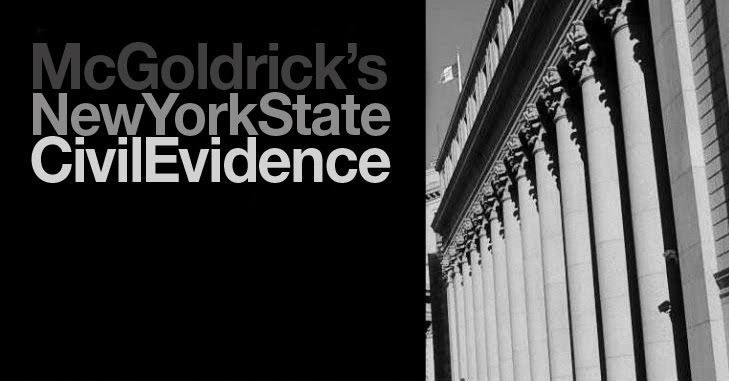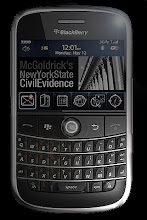CPLR 4513
A person who has been convicted of a crime is a competent witness; but the conviction may be proved, for the purpose of affecting the weight of his testimony, either by cross-examination, upon which he shall be required to answer any relevant question, or by the record. The party cross-examining is not concluded by such person's answer.
In Torres v Ashmawy (2009 NY Slip Op 29134 [24 Misc 3d 506]) the infant plaintiff brought an action through his guardian against the defendant New York State licensed physician for negligence relating to the treatment and care of the infant leading up to and during the plaintiff's birth.
The defendant was the subject of administrative proceedings during which he gave evidence relating to his conduct and practice as a physician when not treating the plaintiff, and then was also subject to separate criminal proceedings relating to the attempted unauthorized practice of medicine, to which he pleaded guilty. The defendant sought to preclude the evidence, findings and reference to the administrative proceedings and the prior conviction from the malpractice proceeding.
The Court denied the defendant's motion, with the exception of that evidence relating to broad findings of negligence, failing to keep patient records and other general matters:
"A general rule of evidence, applicable in both civil and criminal cases, is that it is improper to prove that a person did an act on a particular occasion by showing that he did a similar act on a different, unrelated occasion [citation omitted]" ... Certain exceptions to this rule, none of which are advanced here, have been recognized where, for example, the evidence of other similar acts is offered to help establish motive, intent, absence of mistake or accident, a common scheme or plan, or identity ...
As such, Mayer's application to preclude the introduction at trial of evidence or references to the administrative proceedings, findings or determination of the New York State Board For Professional Medical Conduct is granted to the extent that such proceedings, findings and determinations relate to the sustained specifications of gross negligence, gross incompetence, negligence, incompetence, and the failure to keep adequate patient records. However, keeping in mind "the elementary premise that impeachment is a particular form of cross-examination whose purpose is, in part, to discredit the witness and to persuade the fact finder that the witness is not being truthful" ..., the Court concludes that, upon cross-examination of Mayer, reference may be made to the administrative proceedings, findings and determination of the Board to the extent said administrative proceedings, findings and determination relate to the sustained findings of fraudulent practice (Education Law §6530 [2]) as were sustained in connection with the Eleventh and Twelfth Specifications of the Board's determination.
More particularly, as to Specification Eleven, the Board found that, with the purpose of attempting to reduce his own responsibility, Mayer falsely represented to other medical personnel that a patient had been referred to him by another doctor so as to have hospital medical staff believe that he had come upon the patient when she was already in distress, rather than having to take the responsibility for the truth of his actions. As to Specification Twelve, the Board found that Mayer represented to hospital medical staff that a sonogram had been performed on a patient, when he knew that such was not true in an attempt to reduce his culpability. " [P]racticing the profession fraudulently' involves the intentional misrepresentation or concealment of a known fact without the requirement that the fraud caused an injury to a patient or a benefit to the doctor ...
Whether or not the sustained findings of fraudulent practice constitute prior immoral, vicious or criminal conduct bearing on credibility, they may properly be used for impeachment purposes since, at the very least, they demonstrate an untruthful bent or willingness or disposition on Mayer's part to voluntarily place his own self-interest and advancement ahead of principle or the interests of society ... "[T]he commission of crimes involving individual dishonesty, such as theft, fraud and forgery demonstrate [one's] . . . willingness to place [his] own interests ahead of the interests of society, thereby impacting directly upon the issue of . . . credibility" ... The Board's sustained finding against Mayer of fraudulent practice is no different.
The court found that the passage of time since the administrative proceeding (9 years) and commission of the facts (12-14 years) was
sufficiently outweighed by the seriousness and relevancy of the upheld Specifications and their proximity in time to the acts herein alleged. The defendant also sought to exclude reference to the indictment and his subsequently plea from the malpractice proceeding.
The Court then dealt with the prior conviction under CPLR 4513:
The authority granted to a civil litigant under CPLR §4513 to use an adverse witness' criminal convictions to impeach his or her credibility is "broad" (Vernon v. New York City Health and Hospitals Corp., 167 AD2d 252 [1st Dept.,1990] citing Able Cycle Engines v. Allstate Insurance Co., 84 AD2d 140, 142-43 app. den., 57 NY2d 607 [1982]). "Under CPLR 4513, [both the] conviction of a crime and the underlying facts of the criminal acts may be used to impeach the credibility of a witness at a civil trial" (Dance v. Town of Southampton, 95 AD2d 442, 453 [2d Dept., 1983] citing Moore v. Leventhal, 303 NY 534 ; Able Cycle Engines v. Allstate Ins. Co., supra). "While the nature and extent of such cross-examination is discretionary with the trial court . ., the inquiry must have some tendency to show moral turpitude to be relevant on the credibility issue . . . (Badr v. Hogan, 75 NY2d 629 [1990] citing Langley v. Wadsworth, 99 NY 61, 63-64 [1885]; People v. Montlake, 184 A.D. 578, 583 [2d Dept., 1918]; Richardson, Evidence § 499 [Prince 10th ed.]; Fisch, New York Evidence § 455 [2d ed.] ; see also, Acunto v. Conklin, 260 AD2d 787, 789-790 [3d Dept., 1999][within the sound discretion of Supreme Court to control the manner of presentation of proof at trial especially when dealing with matters affecting a witness's credibility and accuracy]). Certainly, one's status as a physician is of no moment (see, Spanier v. New York City Transit Authority, 222 AD2d 219, 220 [1st Dept., 1995][proper for trial court to allow defense to ask plaintiff's treating physician about prior allegations of improper billing, and other misconduct, since those allegations had a bearing on the doctor's credibility]).
As the defendant's conviction was a Class E Felony under Education Law 6512 (set out below)Mayer's conviction for Attempted Unauthorized Practice of Medicine, an unclassified misdemeanor, and the facts thereunder are highly relevant on the issue of Mayer's credibility and sufficiently demonstrate his "willingness to deliberately further his self-interest at the expense of society".... In addition, the conviction is not so remote in time as to be precluded.
Education Law 6512
Unauthorized practice a crime.
1. Anyone not authorized to practice under this title who practices or offers to practice or holds himself out as being able to practice in any profession in which a license is a prerequisite to the practice of the acts, or who practices any profession as an exempt person during the time when his professional license is suspended, revoked or annulled, or who aids or abets an unlicensed person to practice a profession, or who fraudulently sells, files, furnishes, obtains, or who attempts fraudulently to sell, file, furnish or obtain any diploma, license, record or permit purporting to authorize the practice of a profession, shall be guilty of a class E felony.

